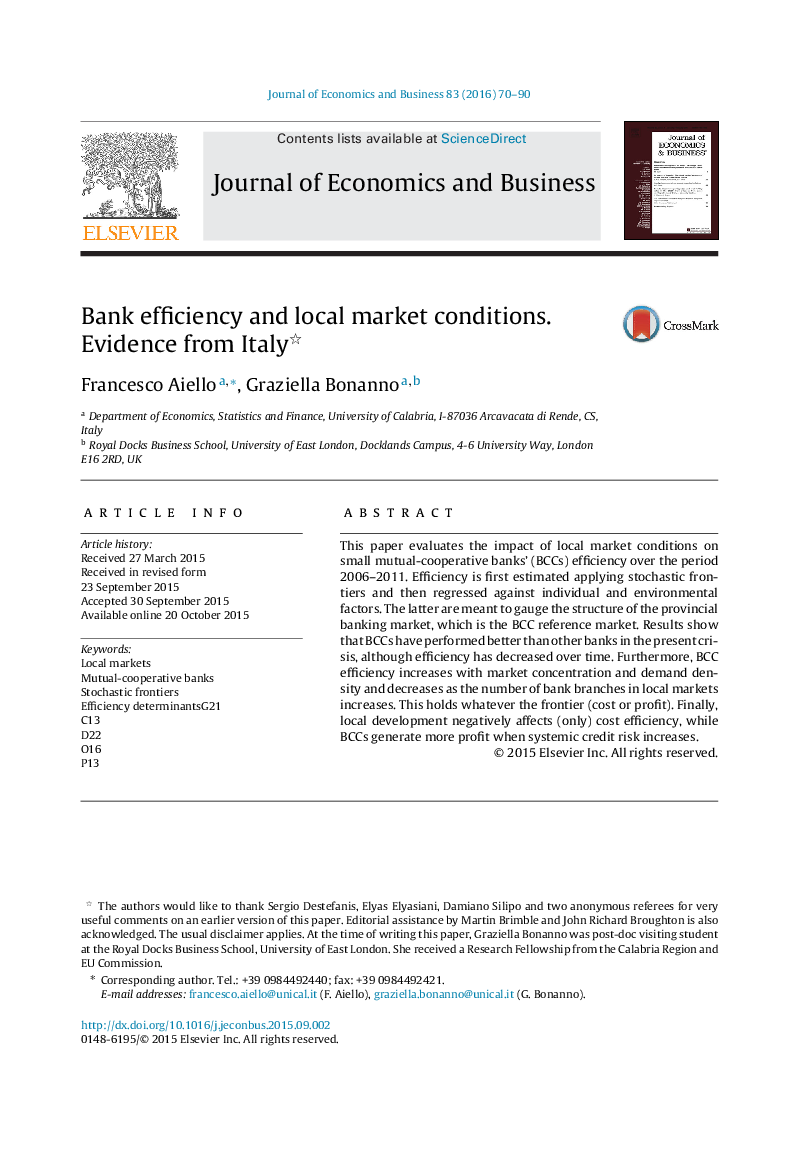| Article ID | Journal | Published Year | Pages | File Type |
|---|---|---|---|---|
| 957894 | Journal of Economics and Business | 2016 | 21 Pages |
•Mutualism is a prerogative of Italian BCCs, whose reference market is local.•Italian BCCs are more efficient than the other bank-types.•Efficiency of BCCs increases with market concentration and demand density and decreases with branching.
This paper evaluates the impact of local market conditions on small mutual-cooperative banks’ (BCCs) efficiency over the period 2006–2011. Efficiency is first estimated applying stochastic frontiers and then regressed against individual and environmental factors. The latter are meant to gauge the structure of the provincial banking market, which is the BCC reference market. Results show that BCCs have performed better than other banks in the present crisis, although efficiency has decreased over time. Furthermore, BCC efficiency increases with market concentration and demand density and decreases as the number of bank branches in local markets increases. This holds whatever the frontier (cost or profit). Finally, local development negatively affects (only) cost efficiency, while BCCs generate more profit when systemic credit risk increases.
